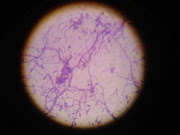If you know you have dengue, avoid getting further mosquito bites during the first week of illness. Virus may be circulating in the blood during this time, and therefore you may transmit the virus to new uninfected mosquitoes, who may in turn infect other people.
The proximity of mosquito vector breeding sites to human
habitation is a significant risk factor for dengue. At present, the main
method to control or prevent the transmission of dengue virus is to combat the
mosquito vectors. This is achieved through:
- Prevention of mosquito
breeding:
- Preventing
mosquitoes from accessing egg-laying habitats by environmental management
and modification;
- Disposing
of solid waste properly and removing artificial man-made habitats that
can hold water;
- Covering,
emptying and cleaning of domestic water storage containers on a weekly
basis;
- Applying
appropriate insecticides to water storage outdoor containers;
- Personal protection from
mosquito bites:
- Using
of personal household protection measures, such as window screens,
repellents, coils and vaporizers. These measures must be observed during
the day both inside and outside of the home (e.g.: at work/school)
because the primary mosquito vectors bites throughout the day;
- Wearing
clothing that minimizes skin exposure to mosquitoes is advised;
- Community engagement:
- Educating
the community on the risks of mosquito-borne diseases;
- Engaging
with the community to improve participation and mobilization for
sustained vector control;
- Active mosquito and virus
surveillance:
- Active
monitoring and surveillance of vector abundance and species composition
should be carried out to determine effectiveness of control
interventions;
- Prospectively
monitor prevalence of virus in the mosquito population, with active
screening of sentinel mosquito collections;
- Vector
surveillance can be combined with clinical and environment
surveillance.
In addition, there is ongoing research amongst many
groups of international collaborators in search of novel tools and innovative
strategies that will contribute in global efforts to interrupt transmission of
dengue. The integration of vector management approaches is encouraged by WHO to
achieve sustainable, effective locally adapted vector control interventions.
Source: https://www.who.int/nepal/news/feature-stories/detail/continuing-the-fight-against-dengue





















